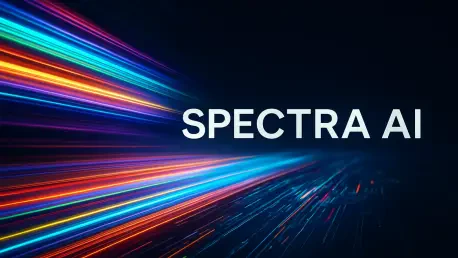In the fast-evolving realm of artificial intelligence, large language models (LLMs) have become indispensable tools, driving innovations in everything from virtual assistants to automated coding platforms, but a persistent challenge has been their slow text generation speed. This often hampers real-time applications where immediate responses are crucial. Traditional methods, reliant on a painstaking step-by-step process, struggle to keep up with the demands of modern use cases. Enter SPECTRA, a revolutionary framework crafted by Professor Nguyen Le Minh and his team at the Japan Advanced Institute of Science and Technology (JAIST). This cutting-edge solution redefines efficiency in LLM inference through an advanced speculative decoding approach, predicting multiple text segments at once to drastically reduce latency. By addressing the core bottleneck of speed without sacrificing quality, SPECTRA emerges as a beacon of progress in AI technology. This article unpacks the mechanics behind this framework, its standout features, and the transformative potential it holds for the industry.
Tackling the Latency Challenge in LLMs
The brilliance of large language models lies in their ability to produce coherent, contextually relevant text, yet their conventional operation mode is a significant drawback. Known as autoregressive decoding, this method generates text token by token, with each new piece dependent on the last, creating a slow, linear progression that becomes increasingly cumbersome with longer outputs. Such delays are particularly problematic in scenarios requiring instant feedback, such as live customer support interactions or real-time code suggestions. The frustration of waiting for responses can undermine user experience and limit the practicality of LLMs in dynamic environments. While the accuracy of this traditional approach is commendable, the trade-off in speed has spurred a search for alternatives that can deliver results more swiftly without compromising the integrity of the generated content.
Efforts to overcome this latency hurdle have led to various strategies, with speculative decoding gaining traction as a viable solution. This technique involves using a smaller, auxiliary model to predict several tokens ahead, which the primary LLM then validates for accuracy. Though promising, many existing speculative methods fall short, often requiring extensive retraining or yielding only marginal speed improvements due to imprecise predictions. SPECTRA enters the scene as a game-changer, introducing a training-free framework that sidesteps these pitfalls. By refining the speculative process, it achieves remarkable acceleration in text generation, setting a new standard for efficiency. This approach not only addresses the immediate need for speed but also aligns with broader goals of making AI tools more responsive and user-friendly across diverse applications.
Unpacking the Mechanics of SPECTRA
At the core of SPECTRA’s innovation is SPECTRA-CORE, a seamlessly integrated module designed to enhance existing LLMs without the need for complex modifications. This component analyzes the internal text distribution patterns of the model to forecast multiple tokens simultaneously, leveraging sophisticated N-gram dictionaries that catalog common word sequences. What sets it apart is its bidirectional search capability, allowing predictions to be made by looking both forward and backward through these sequences, which results in higher accuracy and faster processing compared to conventional methods. The adaptability of SPECTRA-CORE is further enhanced by its ability to update these dictionaries dynamically, ensuring it remains effective across varied contexts and evolving text patterns, making it a robust tool for diverse language tasks.
Complementing this core functionality is SPECTRA-RETRIEVAL, an optional module that boosts performance by incorporating carefully selected external data. Rather than bogging down the system with exhaustive searches through vast datasets, it employs a perplexity-based filtering mechanism to identify only the most relevant and high-confidence text segments. This selective approach ensures that the external input integrates smoothly with the internal predictions of SPECTRA-CORE, avoiding delays that often negate the benefits of speed in other frameworks. Together, these two components create a synergistic effect, minimizing errors in speculative guesses and significantly cutting down the time needed for text generation. This dual-module structure positions SPECTRA as a uniquely efficient solution, capable of meeting the demands of real-time applications without overloading computational resources.
Measuring the Impact of SPECTRA’s Speed Gains
Rigorous testing conducted by the research team at JAIST has demonstrated SPECTRA’s impressive capacity to accelerate LLM inference, achieving speed improvements of up to 4.08 times over traditional autoregressive decoding. Evaluated across a range of tasks including multi-turn conversations, code generation, and mathematical reasoning, the framework was applied to prominent model families like Llama 2 and CodeLlama, consistently outperforming other training-free speculative decoding alternatives. The preservation of output quality alongside such substantial speed gains underscores SPECTRA’s reliability, proving that it can handle complex, varied workloads without faltering. These results highlight its potential to transform how LLMs are deployed in time-sensitive environments, ensuring quicker responses without any dip in performance.
Beyond the raw numbers, the implications of SPECTRA’s efficiency are profound for both practical and economic considerations. Its training-free nature eliminates the need for resource-intensive model retraining, reducing both financial costs and computational overhead. This accessibility makes it an attractive option for organizations and developers operating on constrained budgets, broadening the reach of high-performance AI tools. Additionally, the reduced energy consumption associated with faster inference aligns with growing demands for sustainable technology practices, minimizing the environmental impact of running large-scale language models. SPECTRA’s ability to balance speed, quality, and efficiency marks it as a pivotal advancement, addressing not just technical challenges but also aligning with broader societal priorities in AI development.
Looking Ahead to SPECTRA’s Broader Potential
The success of SPECTRA in accelerating LLM inference opens up a wealth of possibilities for future enhancements and applications. Its modular design, particularly the plug-and-play nature of SPECTRA-CORE, suggests it can be easily adapted or integrated with other AI systems, paving the way for continuous innovation. Researchers and developers might explore refining the perplexity-based filtering of SPECTRA-RETRIEVAL to handle even larger datasets or tailoring the framework for specialized domains such as legal documentation or medical analysis, where precision and speed are equally critical. Such adaptability could significantly expand the scope of SPECTRA’s impact, making fast and accurate language processing accessible across a wider array of industries and use cases.
Reflecting on the strides made, SPECTRA’s development stands as a landmark achievement in overcoming the longstanding latency issues that plagued large language models. The framework’s ability to deliver substantial speed improvements while maintaining text quality, as validated through extensive testing, sets a new benchmark in the field. Its training-free approach and energy-efficient operation address immediate technical needs and contribute to making AI more inclusive and sustainable. As the industry continues to evolve, the groundwork laid by Professor Nguyen’s team at JAIST offers a clear path forward, encouraging further exploration and refinement of speculative decoding techniques to meet emerging challenges in artificial intelligence.









